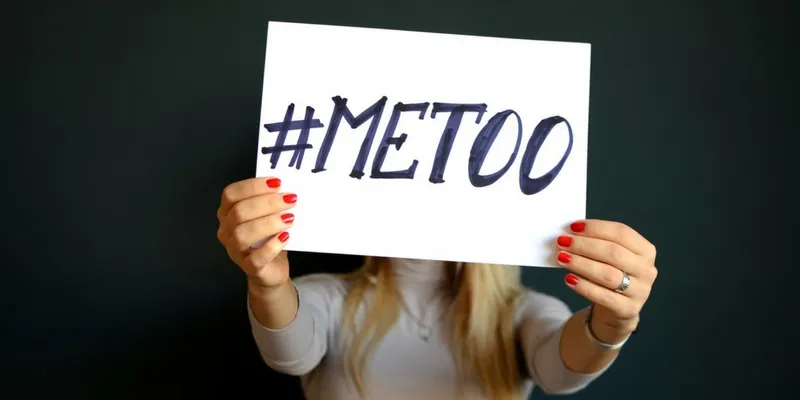Know your rights – prevent and redress workplace sexual harassment
Are you facing sexual harassment at your workplace? Have you seen your co-worker suffering from the trauma of sexual harassment? This article will guide you through the various steps to seek redressal under anti-sexual harassment laws.

If you are dealing with sexual harassment at workplace, you can file a complaint with the internal complaints committee (ICC) of your employer. ICC is like a “single window”-cum-dedicated body that has been established under our anti-sexual harassment laws, in all organisations where at least 10 persons are working. ICC exclusively addresses complaints of sexual harassment at workplace.
Why ICC? It's internal — how is it ‘new’/‘improved’?
Our anti-harassment laws have cracked the loopholes of weak internal redressal mechanisms by addressing the three critical issues – (a) lack of timeliness; (b) neutrality concerns; and (c) accountability issues.
ICC is time-bound by law, to complete any internal inquiry within a period of 90 days. Also, it needs to report its findings immediately thereafter. This addresses (a) above. ICC includes representations from external neutral members with experience, even though they are set up as an internal mechanism. This way neutrality concerns can be easily dismissed. Also, employers must report their compliance status to the district officer every year, and must specifically highlight any delays in (i) examining the complaint; (ii) remedial steps taken post such enquiry; and (iii) status of compliance generally. Given the reporting mechanism and reputational risks, the likelihood of an employer brushing complaints of sexual harassment unduly, is remote.
Is ICC better than the police?
ICC and police are two separate machineries to enforce our laws on anti-sexual harassment. Each of these come with their own benefits.
ICC is far more approachable than police and has a first-hand oversight on all the employees/persons in the workplace who are either involved in an incident of sexual harassment or have some knowledge of the same. Given that they are internal, a reputational issue/workplace safety issue affects them as much as the victim! Hence, they are far more incentivised in ensuring workplace safety in a prompt and effective manner. Also, even this is an “internal committee”, the ICC is well empowered to pull delinquent persons up. The ICC is vested with the powers of the civil court and can thus provide immediate relief to alleviate any imminent setbacks in your ability to continue work.

What happens after I approach the ICC?
Once you approach ICC, you (victim in question), will be given a choice to seek investigation of the matter or conciliation to resolve the complaint. If you have filed the complaint on behalf of someone else (with their consent), the ICC will approach the victim in question and seek clarity on the above. Do remember that ICC cannot force you to go through conciliation and it is entirely your choice. Also remember, that money will not be offered as a basis for any conciliation. However, ICC will guide you through the pros and cons of investigation versus conciliation, depending on the facts of your case.
In case you opt for conciliation, you will be allowed to discuss and resolve the issue with the concerned person (who sexually harassed you), and the process will be facilitated always with the presence of ICC members so as to enable a neutral, safe and inclusive conversation without affecting the dignity of any person. If the conciliation succeeds, the terms of the same will be recorded and signed off for future action by all concerned persons. No inquiry will be initiated.
An investigation is initiated if a conciliation fails or if you do not opt for conciliation.
What happens in case of an investigation?
Once an investigation is opted for, ICC is bound to complete it in 90 working days. The investigation will be conducted in an unbiased manner, after examining all the evidence available. Both parties are given an equal opportunity of being heard. Once the ICC concludes its enquiry, a formal report and recommendations are made to the employer. Action must be taken by the employer against the person found to be guilty immediately, and in any case within a 3-month timeline.
Is my rule crucial, even as a fence-sitter?
Even if you are a fence-sitter, your role is as crucial as the persons involved in the complaint of sexual harassment. You must encourage any co-worker/ colleague dealing with workplace harassment issues to raise the same with the ICC. You must support, and if required, file a complaint on her behalf, whenever a need arises. A role of a bystander or co-worker cannot be undermined in the investigation process. The ICC can always call upon you as an important witness to get more factual clarity, sometimes even on concerns of workplace culture, the conduct of specific individuals involved in the incident, etc. It always helps to be aware of the laws and to recognise your responsibility in providing the right information.
Remember, no organisation/committee can, on its own, provide a safe or positive/inclusive workplace to any employee without the equal reciprocation of such values by the employees. Being a silent witness will not promote a positive or progressive workplace.

What is SHe Box?
You also have the option of lodging a complaint through SHe-Box online portal, available at http://www.shebox.nic.in/. It is an online facility provided by the Government of India for women to lodge complaints of sexual harassment at workplace. This is relevant even to women who are associated with a private organisation. Once a complaint is submitted to the portal, it is directly sent to ICC of the concerned employer to take action, in the manner discussed above.
What will happen to my job/ability to work, in case I complain?
Remember there is no scope for retaliation! Your manager/senior co-worker cannot demote you! You cannot be removed from projects/ assignments merely because a complaint has been filed. Your employer and ICC will take all steps to make sure your ability to discharge your role as before continues, without any compromise on your right to workplace safety.
But, won’t my complaint become a topic for lunch table conversation amongst colleagues?
Never! Details of complaints, witness discussions, the outcome of an investigation/conciliation, and just about anything relating to your complaint of sexual harassment is treated as highly confidential. Your employer/ICC/persons party to the investigation cannot disclose this to anyone. In fact, even witnesses are typically informed about such confidentiality obligations so as to ensure a positive and protective workplace for all stakeholders.
Every stakeholder is taking proactive steps to improve workplace safety – right from the lawmakers to organisations to ICC members.
These steps however need the support of the larger employee force. It is imperative for every employee to do his bit in improving workplace safety – right from awareness to prevention. After all, the intangible benefits of being in a positive, safe and inclusive workplace, where one spends substantial time on a daily basis, can never be undermined.
Note: The article forms part of the Samvad Knowledge Series, a bi-monthly write-up on various legal topics by Samvad Partners.
(Disclaimer: The views and opinions expressed in this article are those of the author and do not necessarily reflect the views of YourStory.)







